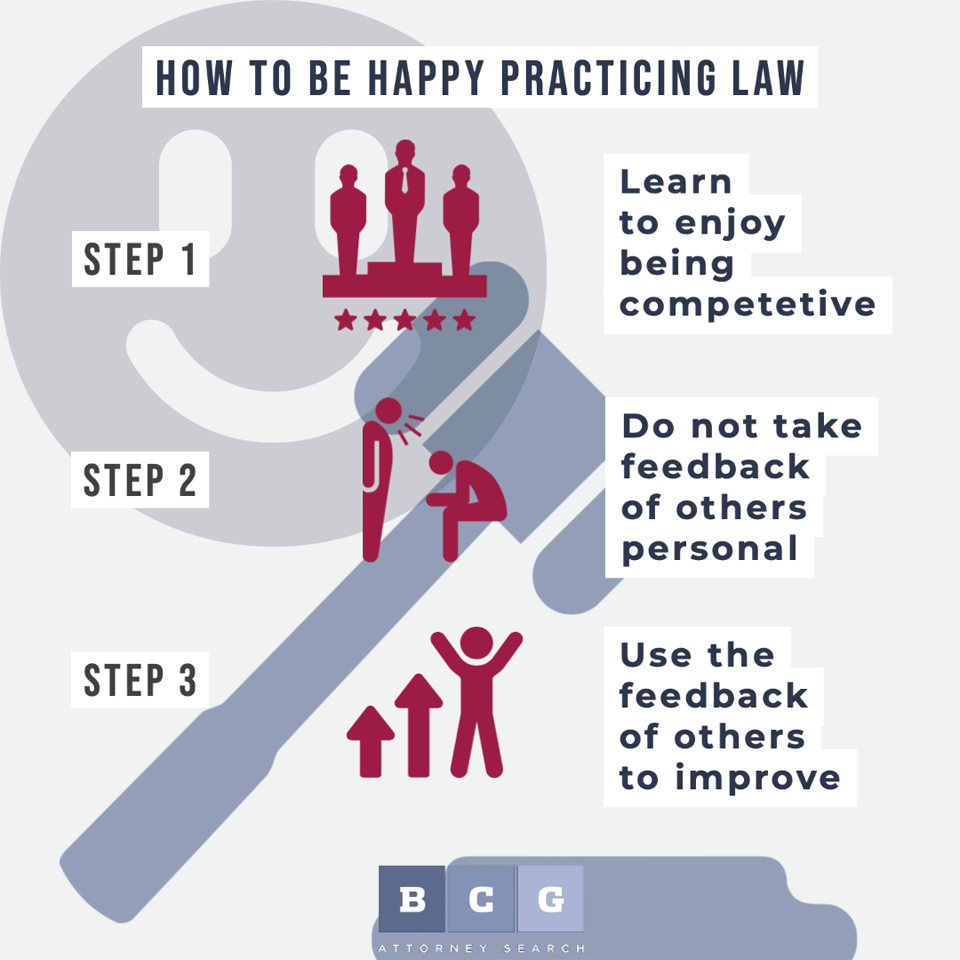How Hard to Become a Lawyer?

Becoming a lawyer is challenging and requires extensive education and dedication. The journey involves several years of rigorous academic and practical training.
Embarking on the path to becoming a lawyer entails earning an undergraduate degree, followed by succeeding in law school, and finally passing the bar exam. This demanding process typically spans seven years: four for an undergraduate program and three for law school.
How Hard to Become a Lawyer? Academic excellence is crucial, along with a strong commitment to ethics and an unwavering work ethic. Aspiring lawyers must also hone their critical thinking, communication, and analytical skills to navigate the complexities of the legal system. The bar exam itself is notoriously difficult, testing a wide breadth of legal knowledge. Despite these challenges, with perseverance and resilience, one can achieve the esteemed title of a licensed attorney, ready to advocate and practice law.
The Making Of A Lawyer
Becoming a lawyer is a journey filled with rigorous academic challenges and milestones. This path is not just about passion and determination, it documents the evolution of an aspiring individual into a defender of the legal system. From mastering law school to passing the bar, each step is crucial in the making of a lawyer.
Educational Prerequisites
Before the courtrooms, comes the classroom. Every lawyer’s journey starts with formal education. A bachelor’s degree is the first leg of this marathon. Subjects often include but are not limited to political science, history, and English.
- A Bachelor’s Degree
- Coursework in critical thinking and writing
- GPA maintenance for law school admission
Post-graduation, candidates must secure a spot in an ABA-accredited law school. This requires dedication and outstanding academic performance.
| Step | Requirement |
|---|---|
| 1 | Bachelor’s Degree |
| 2 | Law School Admission Test (LSAT) |
| 3 | Law School (Juris Doctor) |
The Lsat Hurdle
A significant checkpoint in legal education is the Law School Admission Test (LSAT). This is not just a test but a gateway to law schools across the United States.
- Comprehensive reading and analytical reasoning
- Logical thinking assessments
- Writing sample for skill demonstration
Success in the LSAT calls for focused preparation and problem-solving skills. A high LSAT score paves the way to top law schools.
Law School Rigors
Embarking on a journey to become a lawyer involves navigating through the rigors of law school. This critical phase molds aspiring attorneys into legal experts. Law school is notorious for its challenges, both intellectually and emotionally. Each level demands a strong commitment and resilience. Let’s dissect what makes this journey particularly strenuous.
Course Intensity And Workload
Law school syllabi take academic challenge to a new height. Courses are dense, complex, and require immense dedication. Students often find themselves buried under lengthy readings and legal writing assignments. Key areas of study include:
- Constitutional Law: Understanding the foundation of legal systems
- Civil Procedure: Learning the rules of court processes
- Criminal Law: Studying legal standards for crime and punishment
This non-exhaustive list is a glimpse into the substantial workload a law student manages. It’s common to spend hours in the library, with evenings and weekends becoming prime study times. Discipline is critical, and time management becomes an essential skill for survival.
The Socratic Method In Classrooms
Law schools often employ the Socratic method for teaching. In this approach, professors engage students through inquiry-based learning. The aim is to:
| Engage | Challenge | Develop |
|---|---|---|
| Stimulate critical thinking | Test comprehension of material | Cultivate articulate legal argumentation |
Students must come prepared, as professors randomly call upon them to analyze complex legal scenarios. It teaches quick thinking and effective communication. This method proves stressful but highly effective in preparing students for real-world legal debates.
Bar Examination And Beyond
Stepping into the legal profession demands both dedication and intellect. The Bar Examination stands as a notable milestone for law graduates. For many, the journey becomes intense as they prepare for this challenging test. After the Bar, the path continues with an assessment of moral character. The process ensures that only those fit to uphold the law get the privilege to practice it.
Preparing For The Bar Exam
Navigating the Bar Exam preparation requires a strategic approach. Candidates must dive into a rigorous study routine. Mock exams and comprehensive study materials become daily companions.
- Understand the format: Familiarize with the exam layout
- Develop a study plan: Organize study hours effectively
- Join study groups: Collaborate with peers for better insights
- Practice tests: Enhance time management and accuracy
Study aids such as flashcards, outlines, and bar prep courses serve as vital tools. They help candidates cover extensive legal topics. Regular practice enables test-takers to approach the exam with confidence.
Character And Fitness Review
A lawyer’s integrity is crucial in their profession. The Character and Fitness Review evaluates this aspect with thoroughness. A clean record is essential, but it’s not just about past deeds. Honesty, professionalism, and ethical behavior stand at the forefront of scrutiny.
| Review Components | Details |
|---|---|
| Background Check | Assessment of legal and personal history |
| Professional Conduct | Analysis of work ethics and responsibility |
| Personal Interviews | Discussions to evaluate character traits |
Prospective lawyers must submit an application. They provide relevant documentation to back their character. Failing to meet these standards may bar them from practicing law. Thus, the journey towards becoming a lawyer involves intense preparation, morally and intellectually.

Credit: www.murdoch.edu.au
Financial Considerations
Embarking on a journey to become a lawyer involves significant financial commitment. Understanding the cost components and developing strategies for managing expenses and loans is vital. Let’s explore how financial factors play a crucial role in the process of becoming a lawyer.
Cost Of Legal Education
Legal education is a substantial investment. It can vary based on many factors. These include the prestige of the law school and location. Here are key expenses to consider:
- Tuition Fees: The major expense, differing vastly among institutions.
- Books and Supplies: Essential texts and legal materials add up over time.
- Accommodation and Living Expenses: Costs for housing, food, and other necessities.
- Additional Fees: Application fees, exam fees, and liability insurance.
Student Loan Management Strategies
Many law students graduate with substantial debt. Effective loan management is key. Consider these strategies:
- Budgeting: Create a strict budget to minimize borrowing.
- Loan Forgiveness Programs: Explore options available for public service work.
- Refinancing: Potentially reduce interest rates and monthly payments.
- Income-Driven Repayment Plans: Tailor monthly payments based on income and family size.
Tackling the financial challenges of becoming a lawyer demands careful thought and planning. By grasping the full scope of educational costs and arming oneself with smart loan management tactics, the dream of a law career becomes more attainable.
Emotional And Mental Commitment
Choosing to become a lawyer is not just a career decision. It is a major emotional and mental leap. This journey demands not just intellectual grit but a formidable emotional reserve. Lawyers often grapple with high stakes, which can take a toll on their well-being.
Stress And Mental Health In Law School
Law school is infamously stressful. Students undergo intense pressure to outperform peers. This competitive environment leads to heightened anxiety and stress levels.
- Long hours of study
- Strict deadlines
- High expectations to excel
Prospective lawyers must develop strategies to manage stress. This could include:
- Regular physical exercise
- Time management skills
- Mindfulness practices
Support systems, like counseling, are vital. They maintain strong mental health during law school.
Work-life Balance As A Legal Professional
Maintaining work-life balance is challenging in the legal world. Lawyers often face long hours and unpredictable schedules.
| Challenges | Strategies |
|---|---|
| Extended working hours | Effective time management |
| Client needs | Setting clear boundaries |
| Case deadlines | Prioritization |
Legal professionals can take steps to ensure personal time remains protected. This includes strict scheduling and delegating when necessary.
- Set aside time for hobbies
- Know when to say no
- Ensure vacation time
Balancing personal life and work is crucial. It prevents burnout and maintains productivity.
Career Prospects And Realities
Career prospects can vary widely and hinge on numerous factors. These include the specialized field of law, the economic climate, and individual commitment to the profession. Aspiring lawyers must understand the challenges and opportunities that lie ahead.
The Competitive Job Market
The legal field is notorious for its intense competition. Job openings often attract a swarm of qualified candidates. Standout academic performances, a prestigious law school pedigree, and unique legal internships can tip the scales in an applicant’s favor. However, the reality remains that not all law graduates secure their desired positions immediately.
- Networking: Critical for discovering opportunities.
- Continuous learning: Keeps a lawyer relevant and competitive.
- Specialization: Can set apart candidates in niche areas of law.
Building A Career: Private Firm Vs. Public Service
Choices between private and public legal service paths significantly impact a lawyer’s career trajectory. A role in a private law firm may offer higher earning potential and prestige. On the other hand, public service positions, such as a prosecutor or public defender, provide a sense of civic duty and public impact.
| Aspect | Private Firm | Public Service |
|---|---|---|
| Earnings | Typically higher | Lower but steady |
| Workload | Can be demanding | Varied, can be intense |
| Career Progression | Driven by performance & billable hours | Focused on years of service & contributions |
A decision between these paths often reflects personal values, financial goals, and lifestyle preferences. Frequent self-reflection and adaptability steer a lawyer’s career towards success and fulfillment irrespective of the setting.
Continued Professional Development
The path to becoming a lawyer extends beyond just obtaining a degree and passing the bar. Continued Professional Development (CPD) is a crucial phase in the legal profession. It ensures lawyers stay up-to-date and effective in their practice. Let’s delve into what this ongoing learning entails for legal professionals.
Mandatory Continuing Legal Education (MCLE)
Lawyers must complete a specific number of continuing education hours to maintain their licenses. This process is known as Mandatory Continuing Legal Education (MCLE). Here’s what MCLE involves:
- Regular coursework or seminars focused on various law aspects
- Maintenance of ethical standards within the legal community
- Topics include substantive law, legal ethics, and practice management
State bar associations set the MCLE requirements. These can differ from one state to another. Compliance must be demonstrated frequently, often every one to three years.
Adapting To Changes In Law And Practice
Law is dynamic, changing with new legislation and judicial rulings. Lawyers need to stay alert to these developments for effective practice. The benefits of staying current include:
| Benefit | Description |
|---|---|
| Better Service | Enhanced ability to serve clients effectively |
| Competitive Edge | Maintaining a leading position in the legal market |
| Risk Reduction | Lower chances of ethics violations and malpractice |
To adapt, professionals engage with legal journals, online resources, and networking with peers. Some even pursue higher degrees or certificates in specialized areas.
Young lawyers and veterans alike realize that their education is never truly complete. CPD ensures their expertise remains sharp and relevant. Thus, it is a critical step for a successful and long-lasting legal career.

Credit: www.bcgsearch.com
Conclusion
Embarking on a legal career demands dedication, time, and perseverance. It’s a path rife with challenges, yet equally rewarding for those committed. Aspiring lawyers must navigate rigorous academics, pass grueling examinations, and gain practical experience. For the determined, the journey to don the robes of justice is an achievable dream, promising a fulfilling lifelong vocation.
Introducing Jonah Plum, a legal luminary whose journey through the corridors of justice has been intertwined with the eloquence of the written word. Born and raised in the vibrant city of Seattle, Washington, Jonah's early fascination with language and debate laid the foundation for a remarkable career in law.
Jonah's scholarly odyssey began at Harvard Law School, where they immersed themselves in the study of jurisprudence, honing their analytical prowess and legal acumen. Armed with a law degree, they entered the legal arena, navigating courtrooms and boardrooms with a fervor for justice. Yet, it was the realization of the transformative power of the written word that led Jonah to pivot from legal briefs to the world of blogging.
A digital advocate in the truest sense, Jonah recognized the need for demystifying legal concepts and making them accessible to a broader audience. This blog, a virtual repository of legal insights, transcends geographical boundaries, connecting with a global readership hungry for clarity amidst legal complexities.
Beyond the black letter of the law, Jonah delves into the human stories that underscore the legal landscape. Their writing goes beyond legal analysis, weaving narratives that humanize the law, shedding light on its impact on individuals and society.






